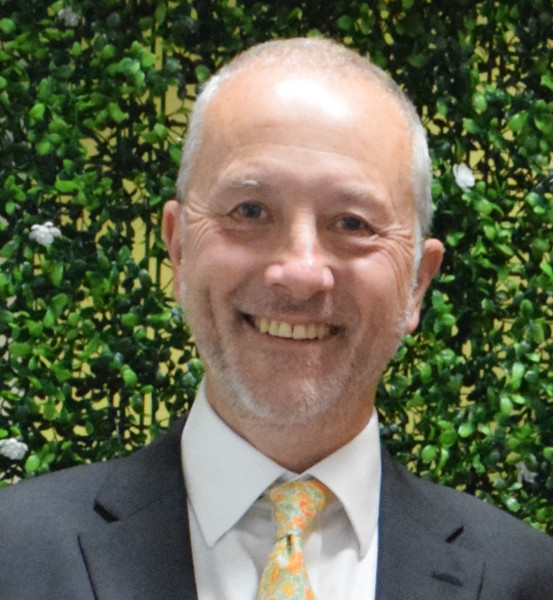Cancer Epidemiologist Sees Collaboration As Key to Research Success
Paul Pharoah, PhD, MD, Will Work With Colleagues to Update Cancer Prediction Tools, Elucidate Cancer Genetics
In 2005, Paul Pharoah, PhD, MD, and colleagues organized a meeting in Cambridge, UK, to bring together researchers from around the world studying the genetics of ovarian cancer. It led to the creation of the Ovarian Cancer Association Consortium (OCAC). Nearly 20 years later, the collaborating scientists are still working together.
“Almost everything we know about the genetics of ovarian cancer has come from this consortium, and that's involved working together,” he said.
Now, as professor and research scientist in the Department of Computational Biomedicine since 2022, Pharoah aims to work with colleagues across departments and laboratories at Cedars-Sinai to make similar inroads in tough-to-treat diseases.
Pharoah was previously professor of Cancer Epidemiology at the University of Cambridge where he led a research group studying how the genetic variants that people inherit alter risk for hormone-related cancers, and how patient and tumor characteristics affect chances of survival after a diagnosis of cancer. His research into prognostic factors led him to create two online tools that help clinicians make treatment decisions: PREDICT Breast Cancer and PREDICT Prostate. His work was recognized with the John Graunt Prize for Extraordinary Achievement in Population Sciences in 2016.
Pharoah spoke with the Cedars-Sinai Newsroom about new collaborations he looks forward to forming.
What has made your collaborations possible?
OCAC has been successful because we all shared the same vision for the sort of science we wanted to do, and we were willing to share data to make it happen. My team has collaborated with investigators from Cedars-Sinai for years, which is part of the reason I came here. Simon Gayther, PhD, was one of the founding members of OCAC, and Michelle Jones, PhD, joined seven years ago. In the past seven years, we have worked very closely on several consortium projects and the OCAC database is now hosted by us at Cedars-Sinai.
What inspired you to create the PREDICT websites?
I wanted to apply data on how different cancers behave and how people respond to treatment to develop tools to help oncologists personalize their approaches and guide their discussions with patients. The tools can explain the probabilities of a patient surviving depending on the treatment they get, and how different combinations of treatments might affect those percentages.
What projects are you currently working on?
My colleagues in Computational Biomedicine and I will develop the PREDICT tools further so they can incorporate data from a more diverse population than the initial data from the UK model.
We're particularly interested in seeing how well the PREDICT Breast Cancer tool performs with women of African ancestry and women of Latin ancestries. One of our plans is to incorporate U.S. national data and data from Cedars-Sinai.
Looking ahead, what excites you most about the clinical applications of cancer epidemiology?
On the ovarian cancer genetics front, I would hope that in the next few years, with all the whole genome sequencing data that's becoming available from various biobanks around the world, we'll be able to use those data to continue to unravel the inherited basis of ovarian cancer.
We would like the opportunity to expand the PREDICT model into other cancers. There is a team in the UK working on kidney cancer prediction, and there's potential for doing work on colorectal cancer.
I'm also enjoying work on molecular pathology. We would like to start using some of the newer techniques such as spatial transcriptomics and spatial proteomics to investigate more complex patterns in the molecular pathology of ovarian cancer, and how they relate to clinical outcomes. We are particularly interested in studying the role of tumor immune cells.
When it comes to ovarian cancer, what we understand about the biology says patients should respond to immunotherapy, but, in fact, they often don't. There is work to be done in understanding what it is about the immune environment in this cancer that prevents response to immunotherapy. This is an area of research that is developing rapidly.
Follow Cedars-Sinai Academic Medicine on X for more on the latest basic science and clinical research from Cedars-Sinai.




